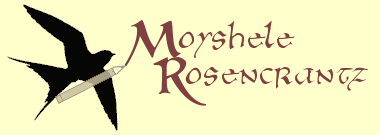An interview recorded by my cousin, which I then transcribed and translated from Hebrew
Lova: Meanwhile, I had no money. Those who had arrived before me, and those who came with me, all of them had a bit of money. But I didn’t want to beg, so I had nothing to eat.
 |
| Kars, where Lova was sent from Duğur, old postcard |
 |
| Kars, the citadel and old city, 1922 |
Meanwhile, the police station had to move to a new building and we helped them move everything. And in the new station we stayed in a huge room, me along with some other people they had collected and arrested since my arrival. There were some Christian Georgians, who wanted to go to Paris. These were Mensheviks who had run away from the Bolsheviks1. And there was another man, a Russian. So what happened? We would lie down in this room, and from time to time we would go out to work. I had already started working for the local government, fencing in trees so the goats wouldn’t eat them, and planting new trees. They let me go to work. I had gotten to know them pretty well after drawing their portraits – we were good friends now. So they let me do all kinds of odd jobs. Until, after twenty days waiting, a reply finally came back from Ankara, to send me back to Russia.
 |
| An ornate building built in 1883, with an upper floor added in 1903. In 1920, after Turksh revolutionaries captured Kars, this building became the Town Hall, probably where Lova came to see Tsakh Komtsar |
They had a mayor there, his name was Tsakh Komtsar. When the reply came that they have to send me back to Russia, I went to see Tsakh Komtsar and I said to him, “To Russia – alive – you cannot send me. Kill me, and send what’s left.” And I was so annoyed that I grabbed his desk, lifted it – I was a healthy lad – and dropped it back down on the floor with a “bang”, nearly sending his writing implements and all of his papers flying on the floor.
Just then, the city engineer suddenly came in, by complete chance, and sees me going wild. “What happened?” he asks.
So I told him, “They want to send me back to Russia.”
So he spoke to them, and I said, “Send me anywhere you like, anywhere in the world, I don’t care where. As long as it isn’t Russia.”
He spoke to them. And twenty days later an answer came, to send me into exile to Sebinkarahisar.
 |
| Sebinkarahisar, where Lova was exiled |
Now, Sebinkarahisar is far away in the mountains. I was to go into exile for five years. After living there for five years, I could go and live anywhere I wanted in Turkey. I’d be a Turkish citizen. Fine.
Among those who were there with me, three of the Jarzim, the Muslims for Caucasia, were sent into exile with me, and a Georgian too. As for the Christians, the Mensheviks, they had to travel to Istanbul, and from there to France.
Along the way we met another man who had stolen the border, a Russian by the name of Malkanin, who had been living in America for 14 years, when he heard that in Russia they had a revolution, and they’re all brothers now, and all is good there. So he sold his farm, and arrived in Russia with $14,000, and started a farm there. But the Bolsheviks very quickly decided that he was a Kulak (a rich landowner), what they call in Russia a fist, a Burzhui, and they threw him into jail. So he started begging. He says, “What do you want from me? I heard about the revolution, and I came, all I wanted was to be your brother.” So then he says, “Let me go to live in Caucasia, I used to live there when I was young.” And when he managed to come to Caucasia, he crossed the Turkish border and ran away from there.
 |
| Bolshevik propaganda poster: “Did you volunteer?” by Dmitry Moor, 1920 |
So they sent him into exile together with the rest of us. As for me, I spent half a year in Sebinkarahisar. Winter had come, a cold winter. Down in the valley it was green, but we were up on the hills, where it was snowy and cold. I waited for better weather. I wanted to run away, but not in the freezing weather and snow. Meanwhile, for the half-a-year that I was there, I did all different kinds of work. There’s a lot to tell, but I don’t want to talk about that now, because it’s a very long story.
One bright day about half a year later... Actually not one bright day. One dark evening about half a year later, I was on my way out. But the moon rose early, so I went back into the room where I lived together with the others. The next evening I set out earlier, before the moon rose, and started walking, according to my map and my compass, always South, South, South.
 |
| Sebinkarahisar |
 |
| Lova’s itinerary through Turkey |
1Probably to join Noe Zhordania in the Menshevik-dominated Government of the Democratic Republic of Georgia in Exile, in Leuville-sur-Orge.

No comments:
Post a Comment